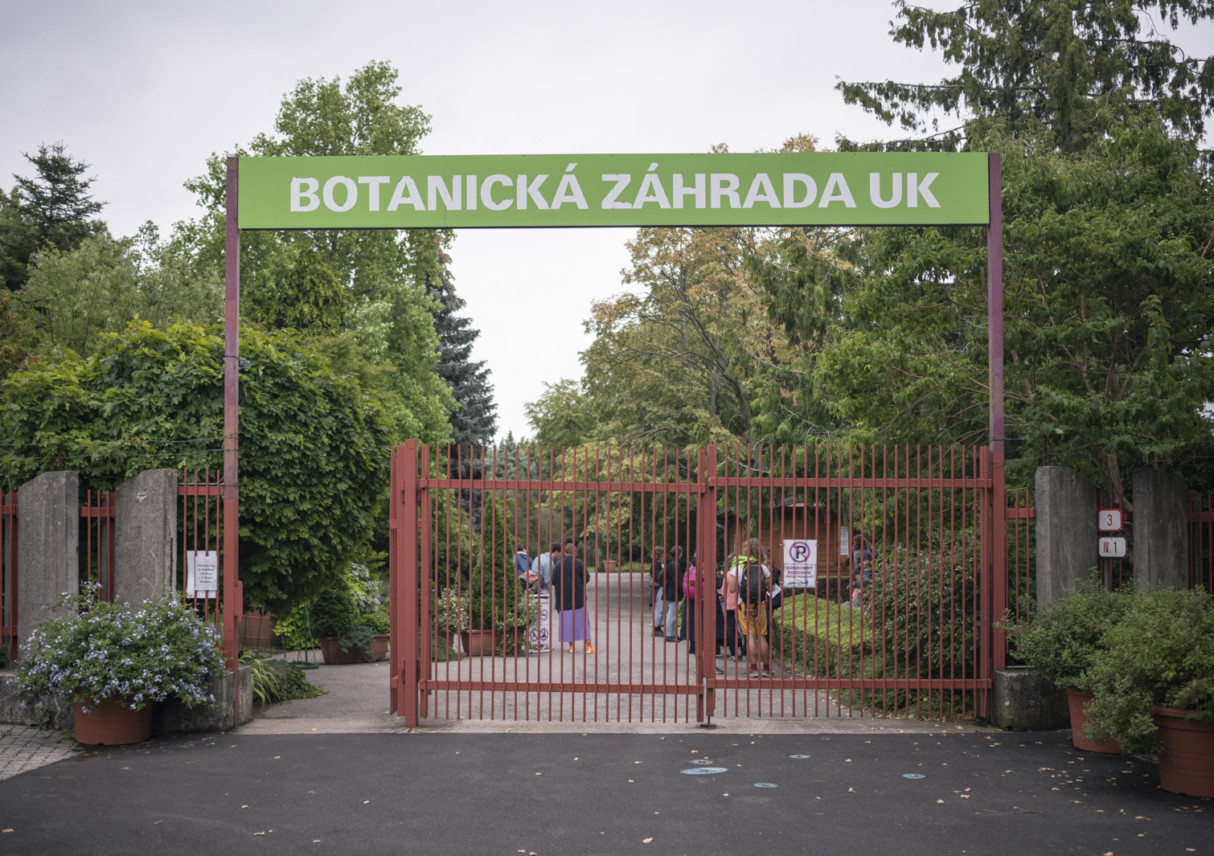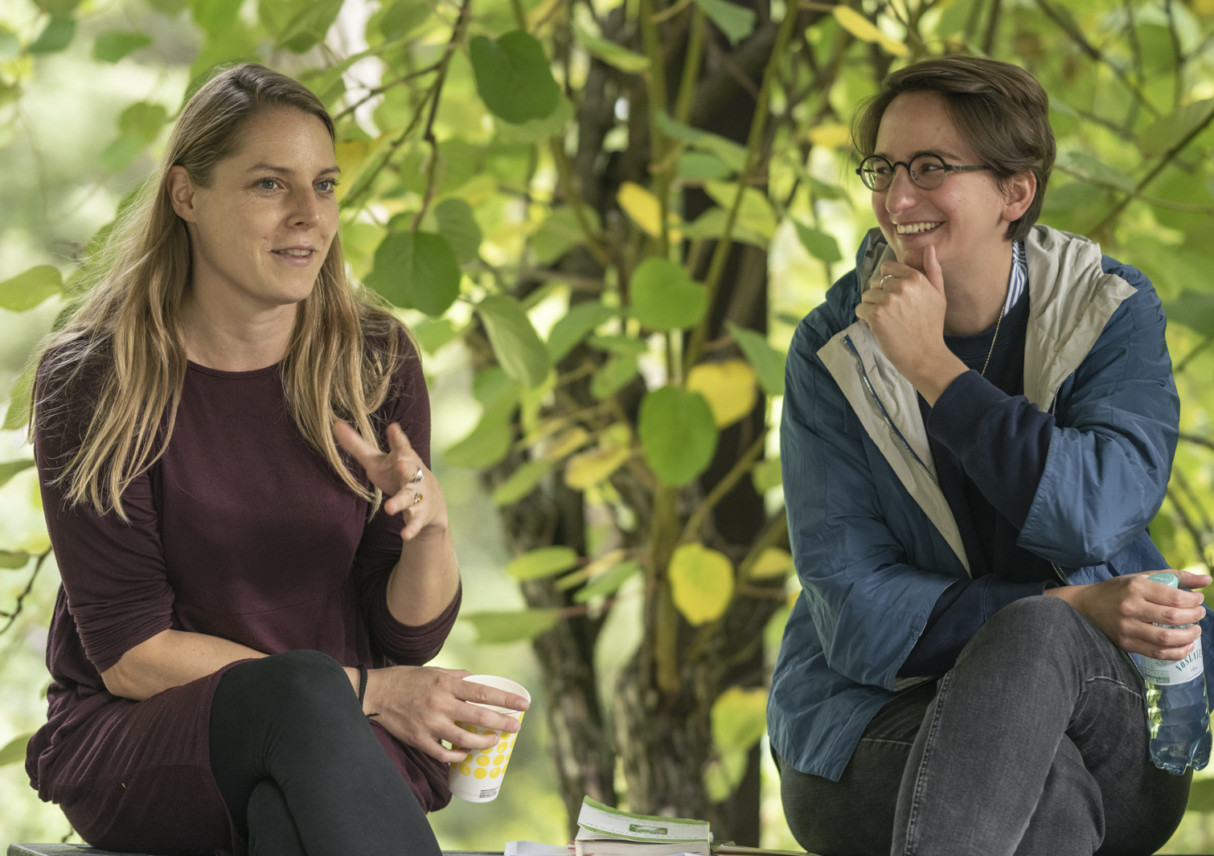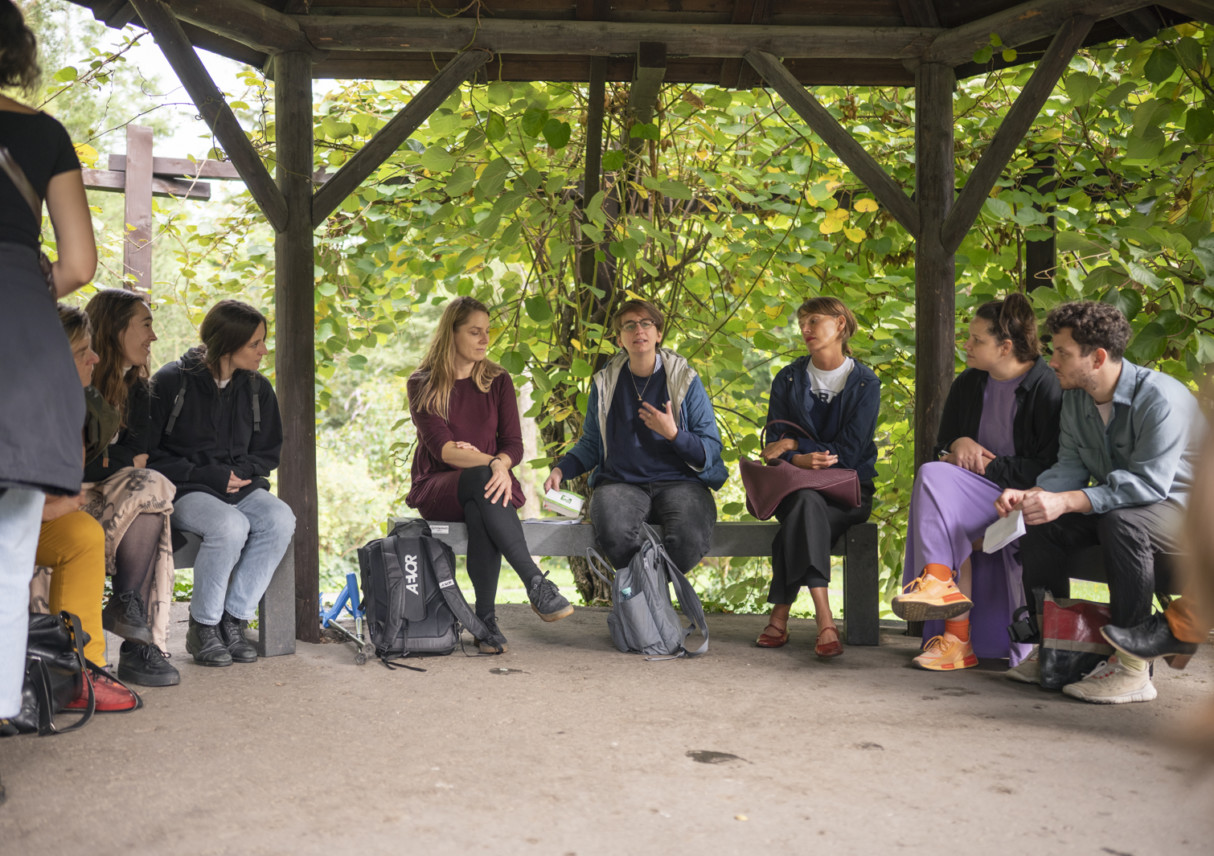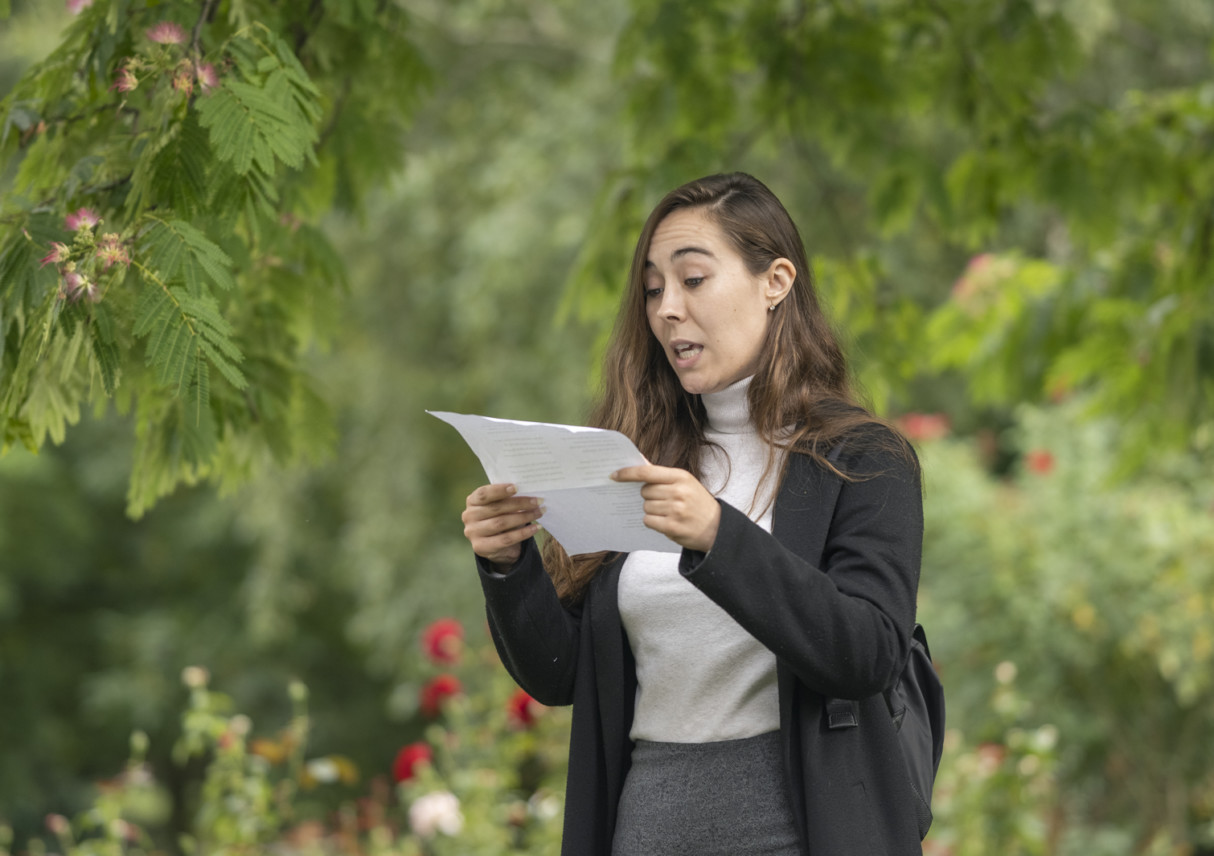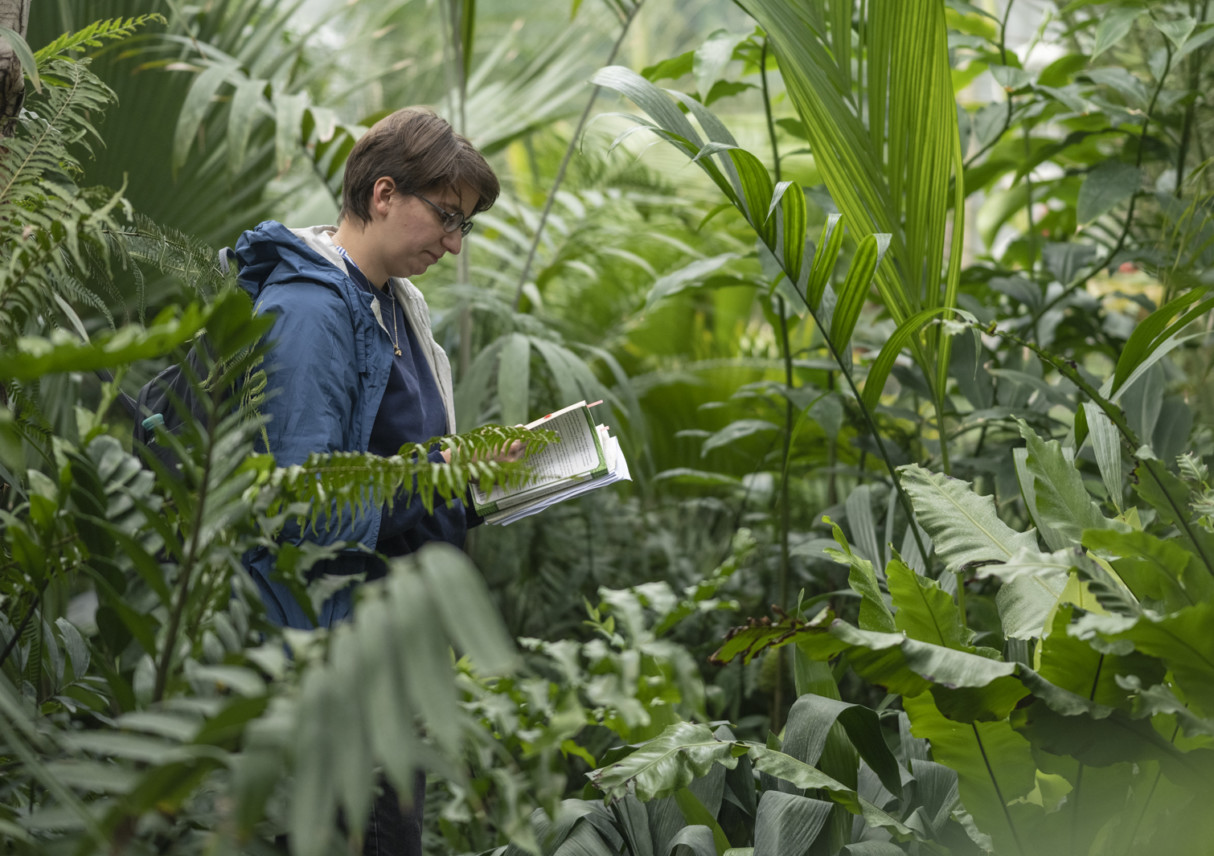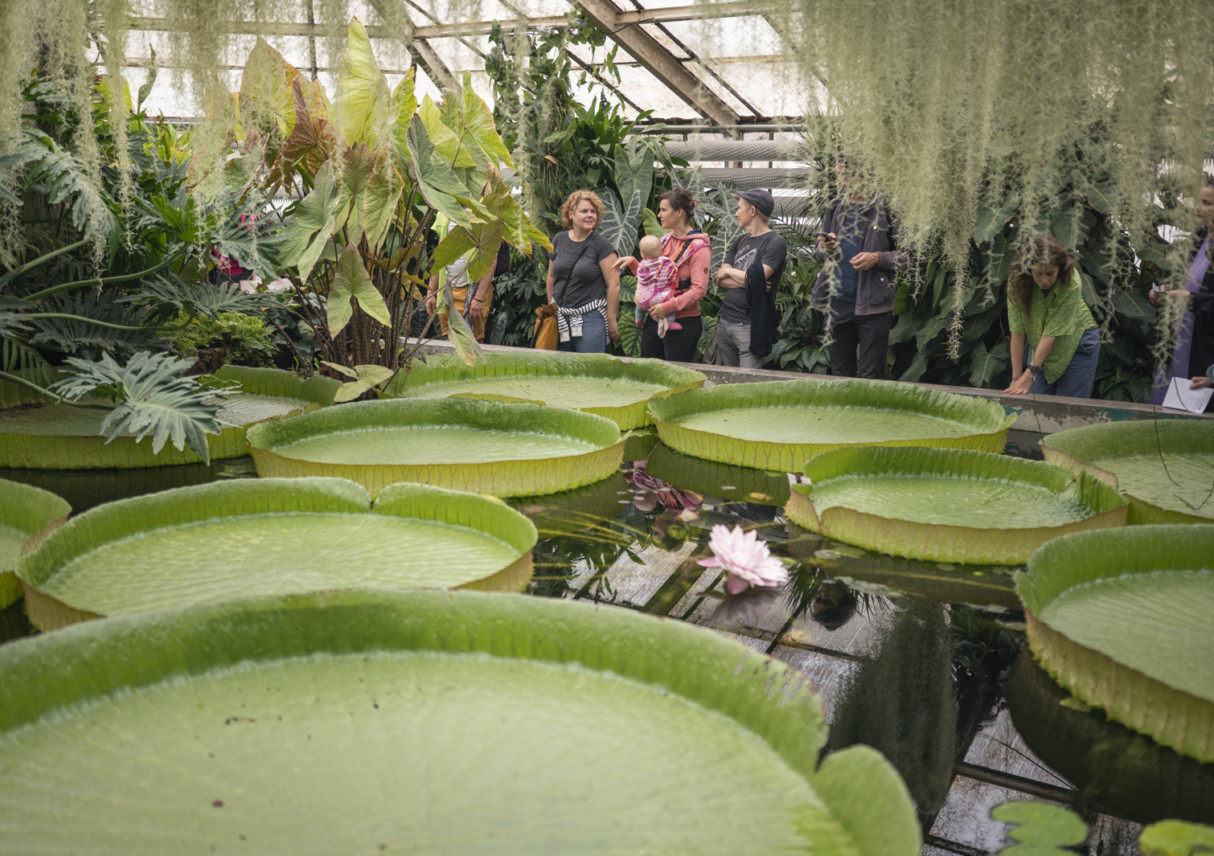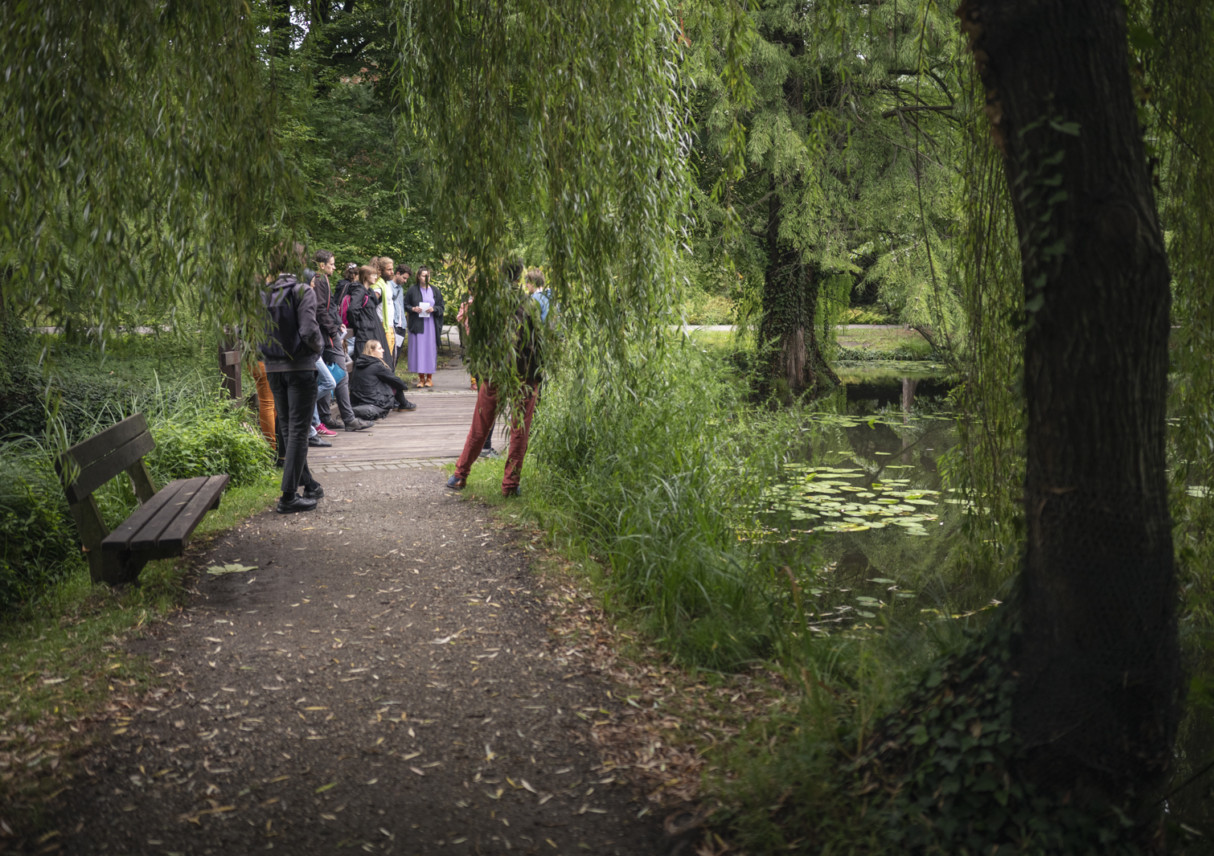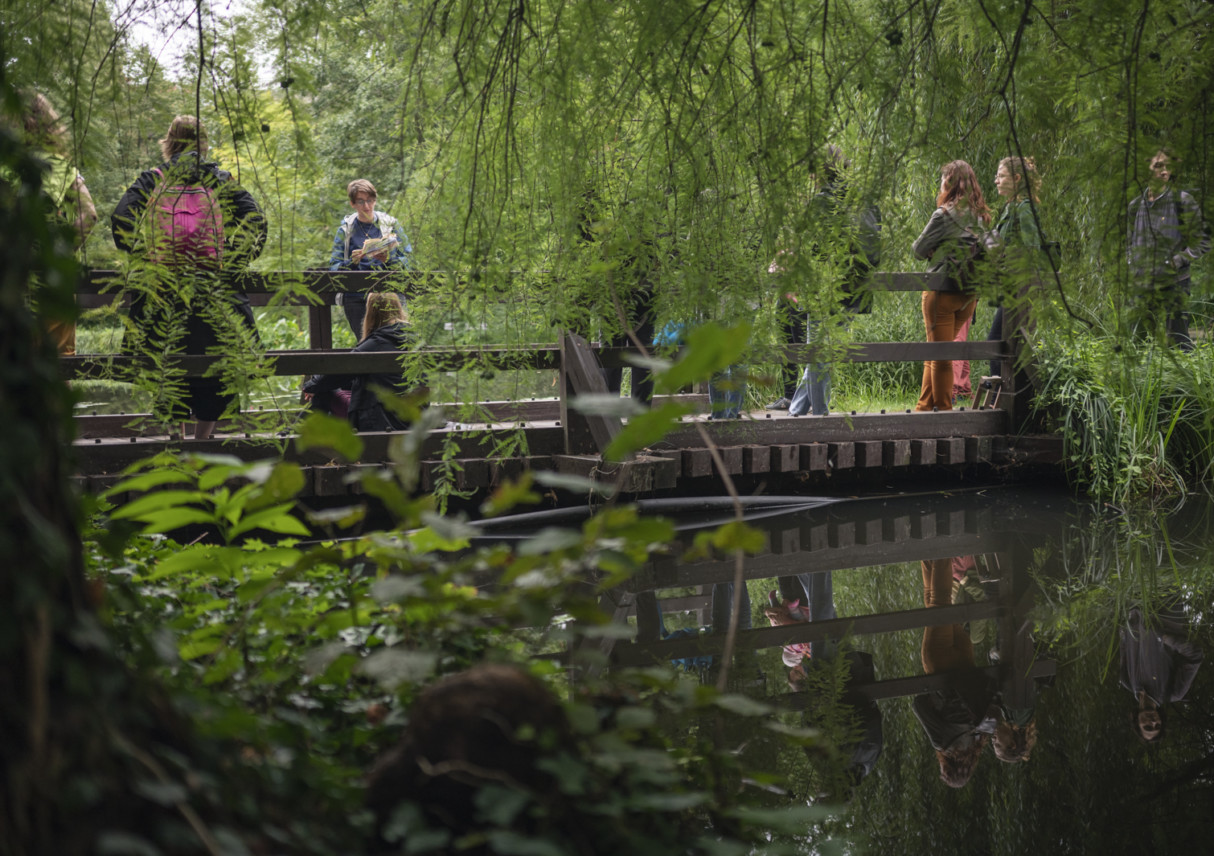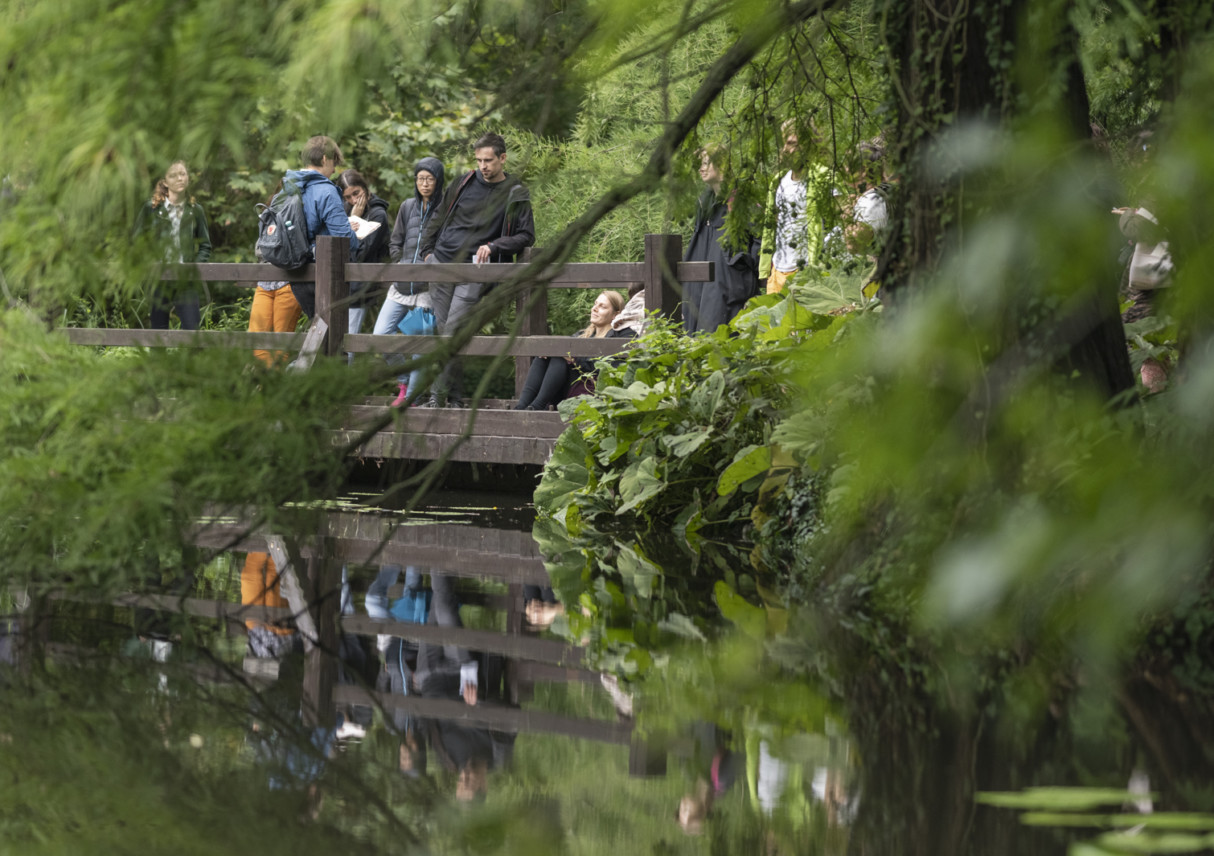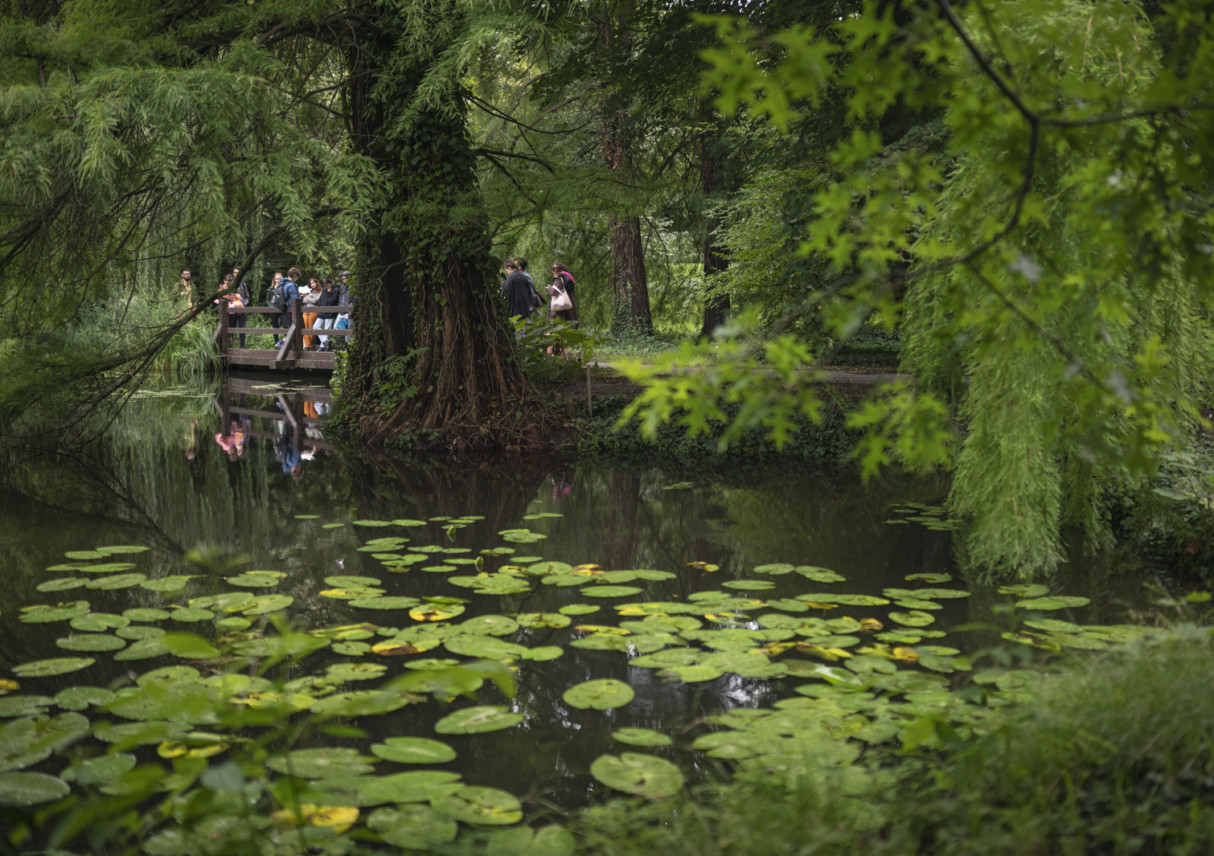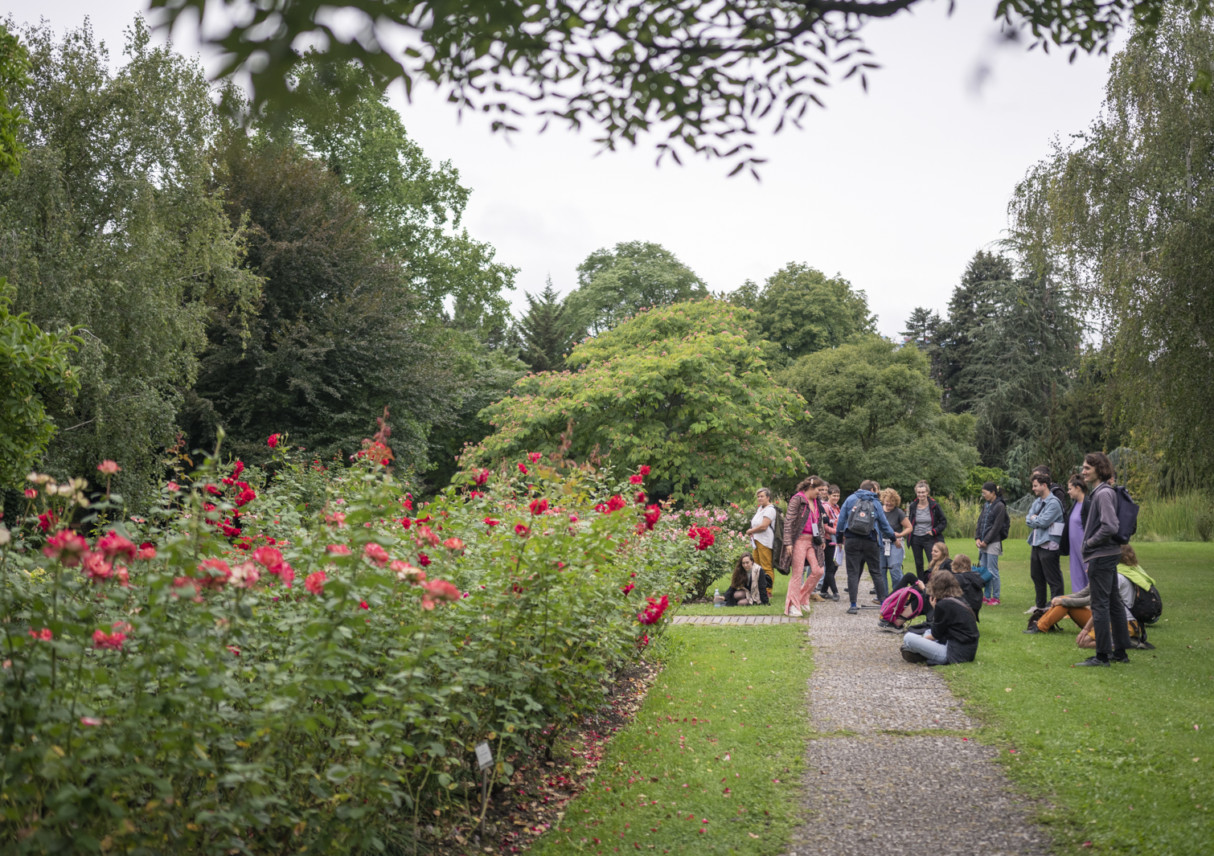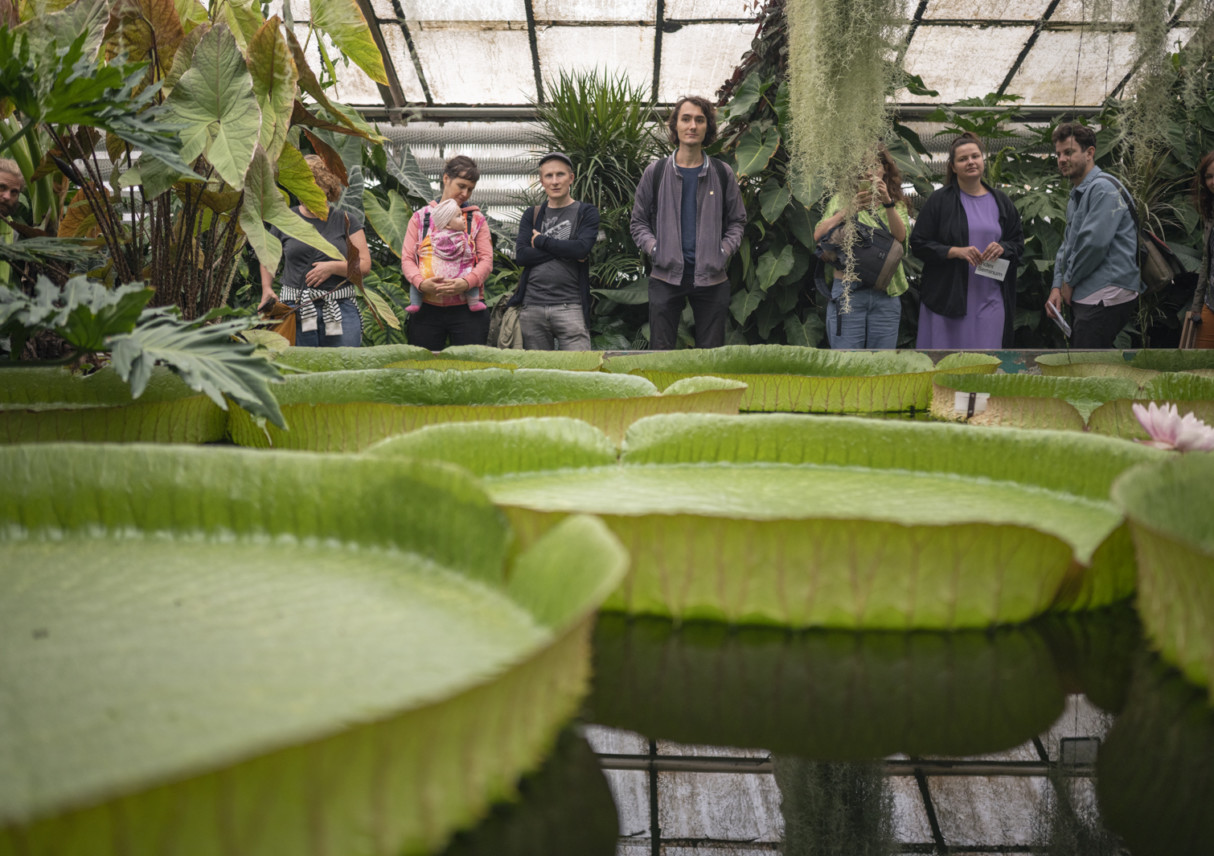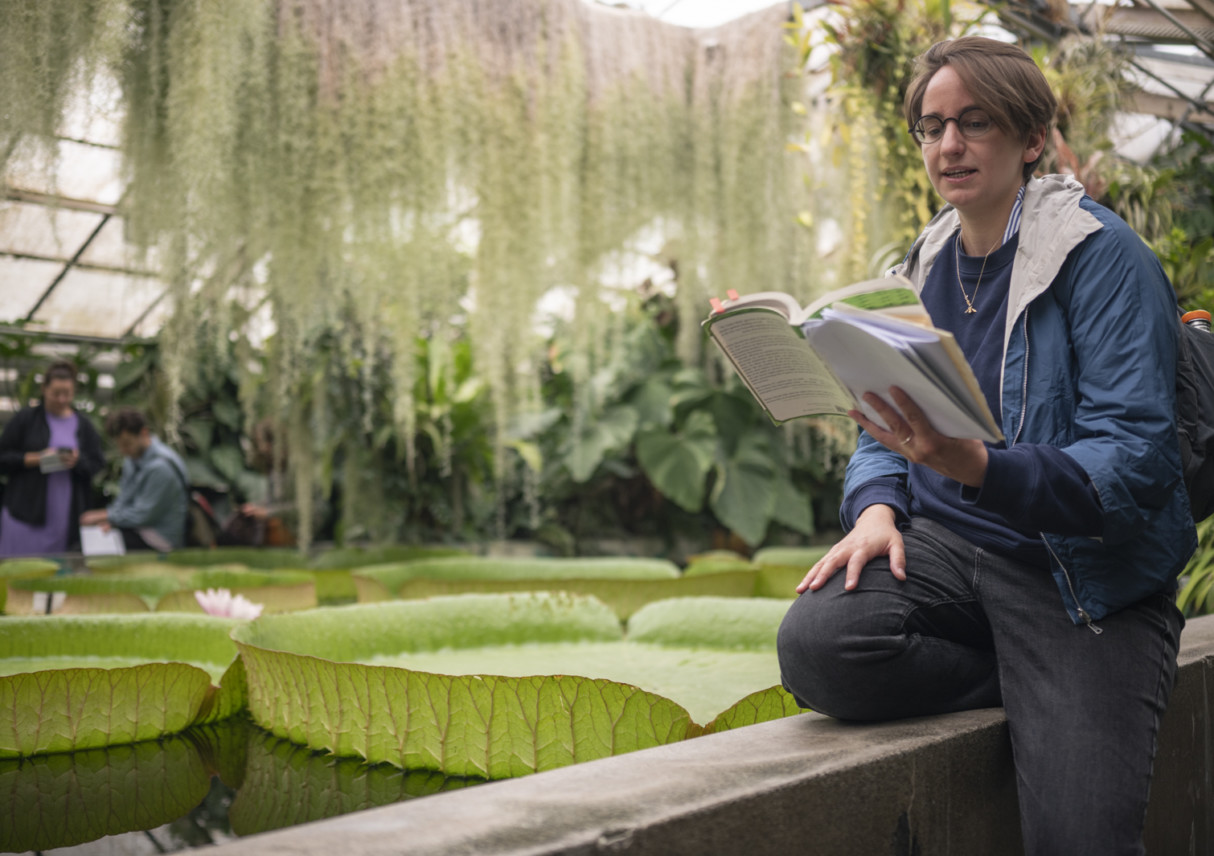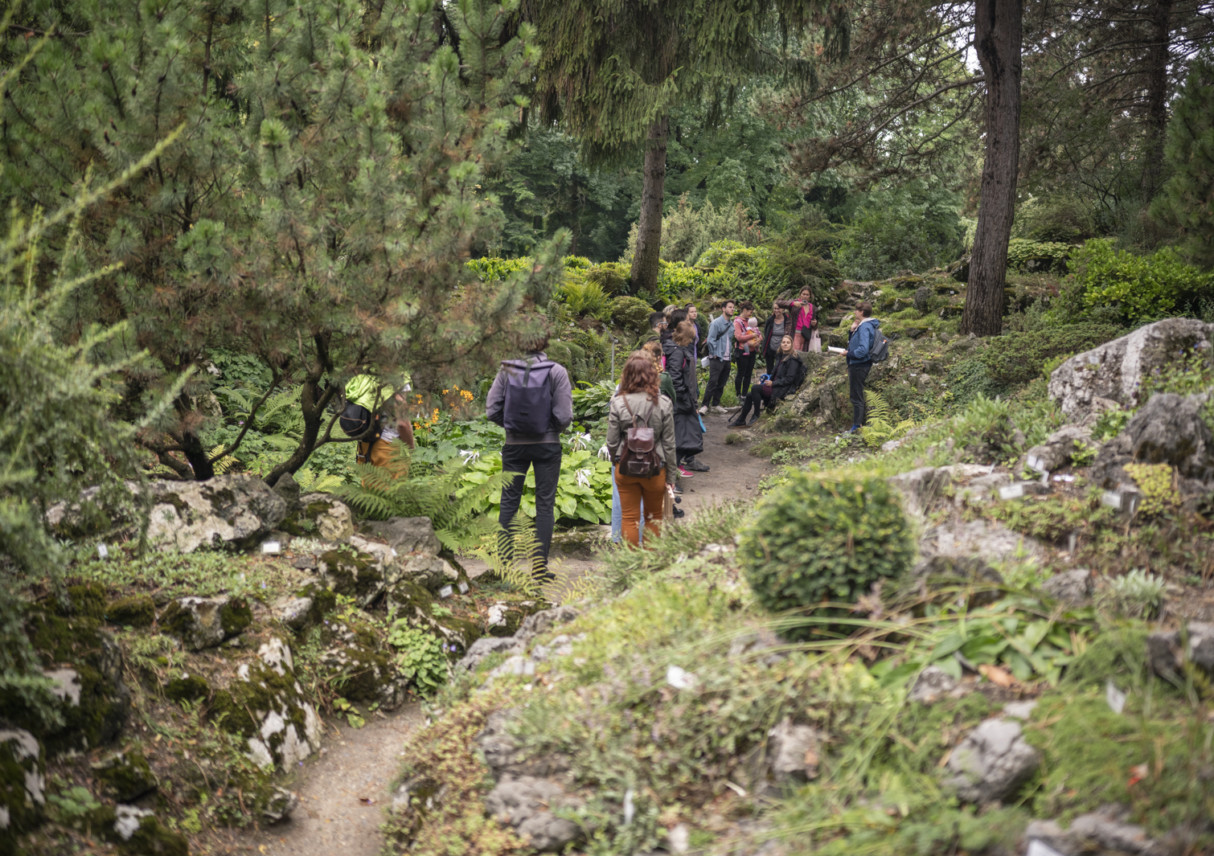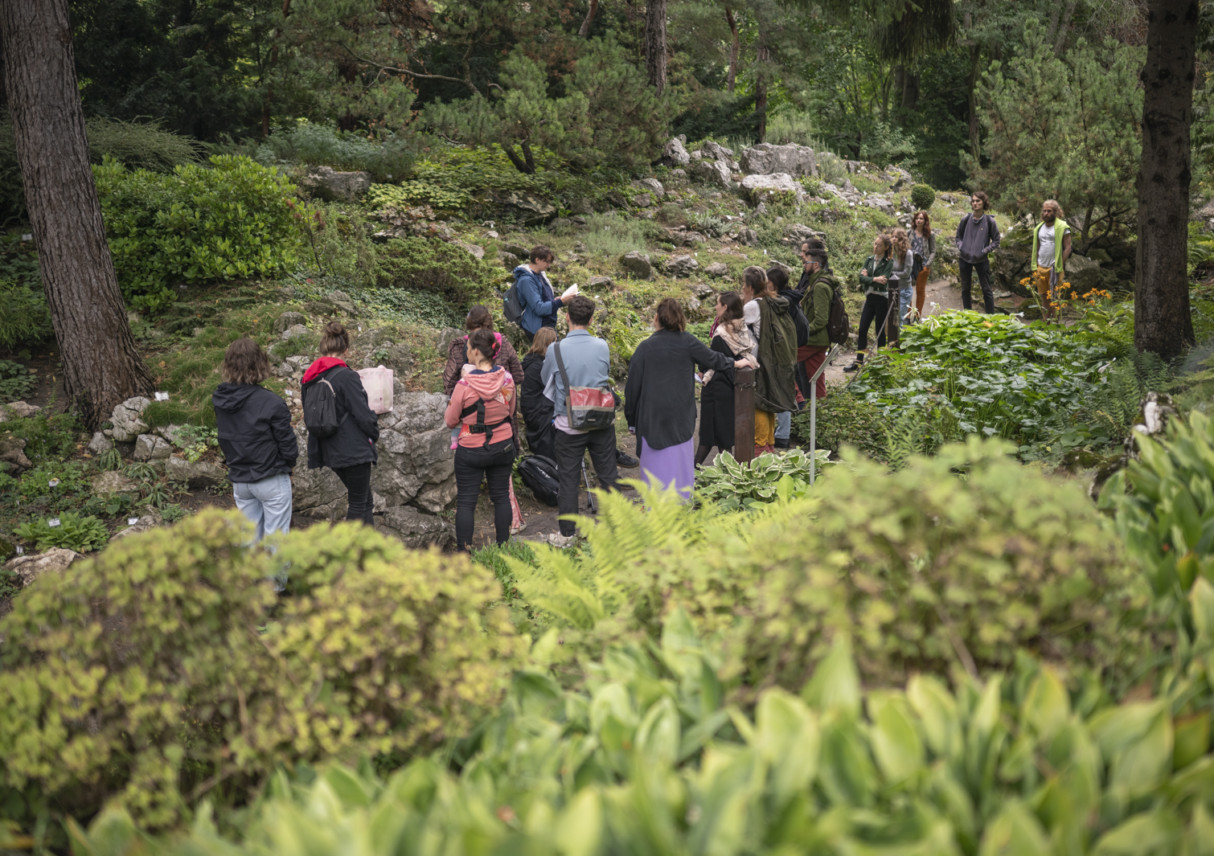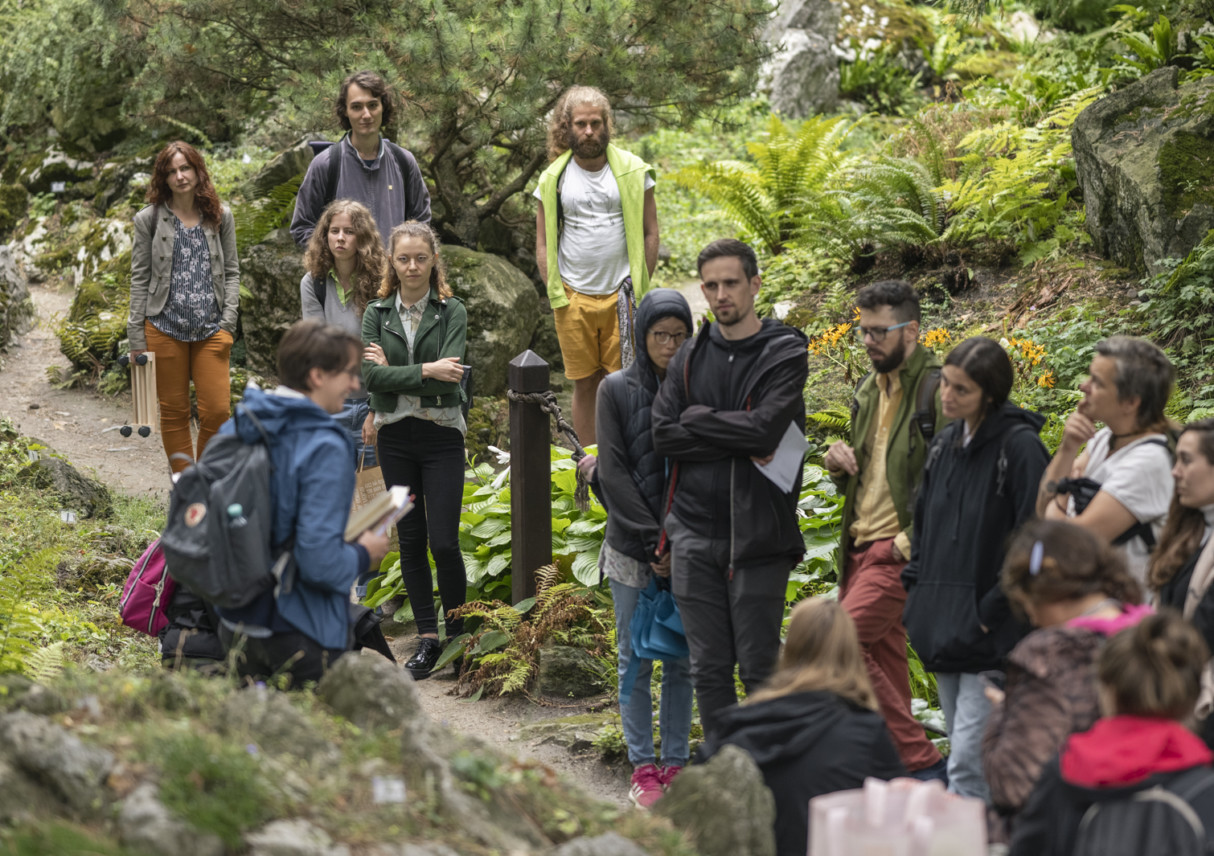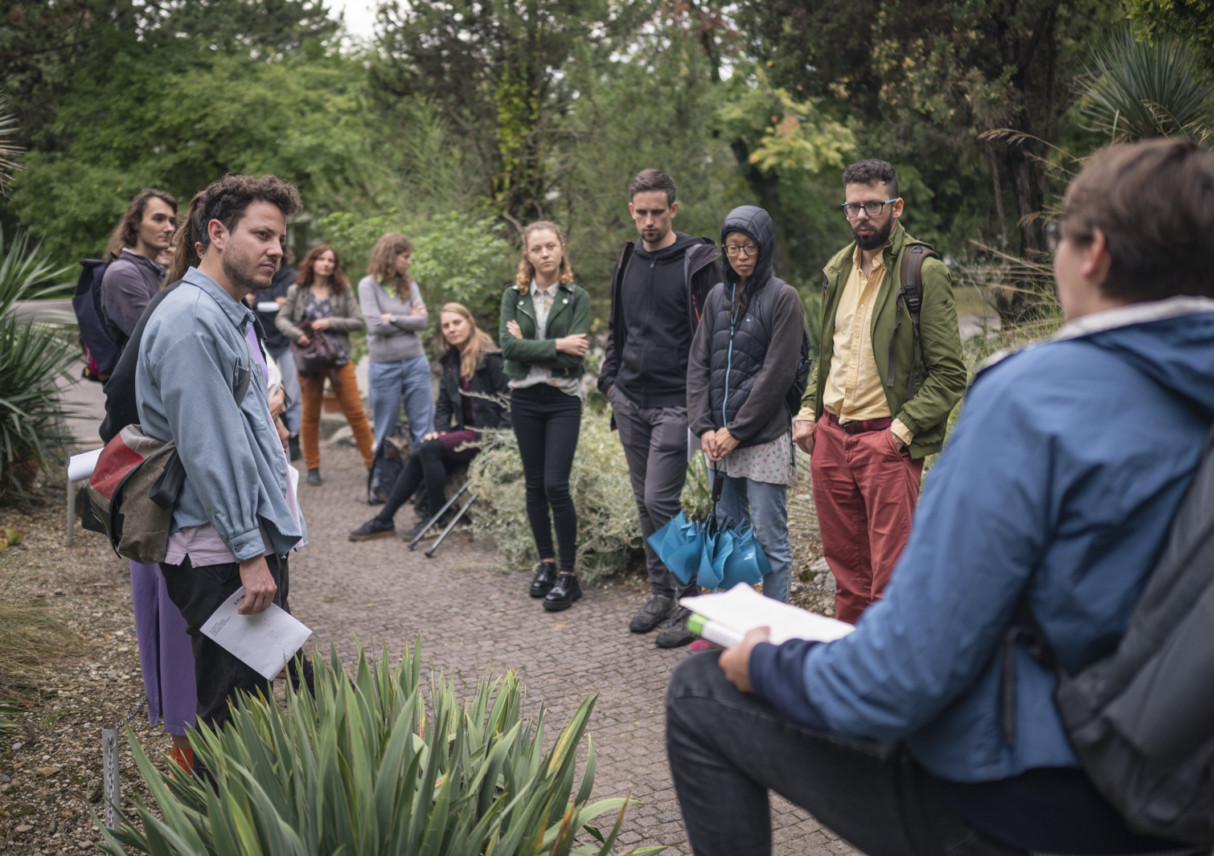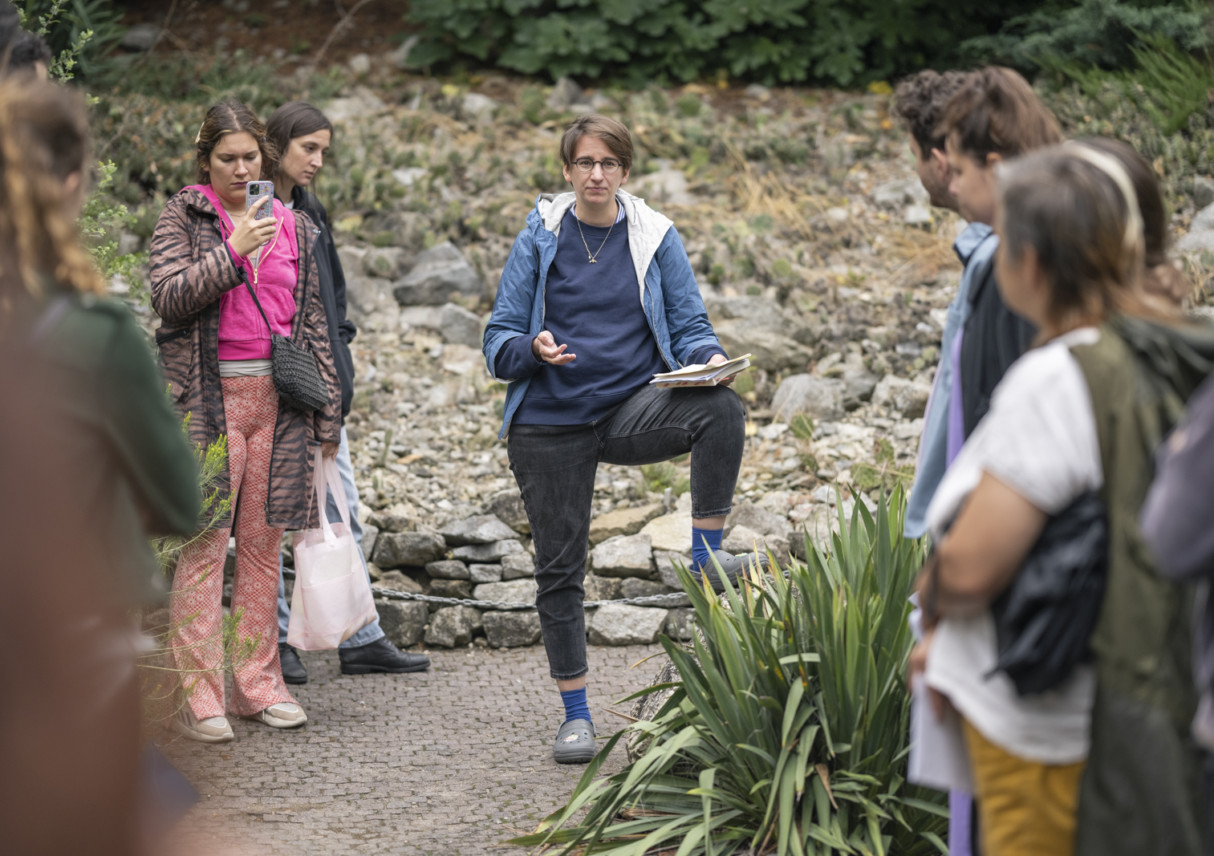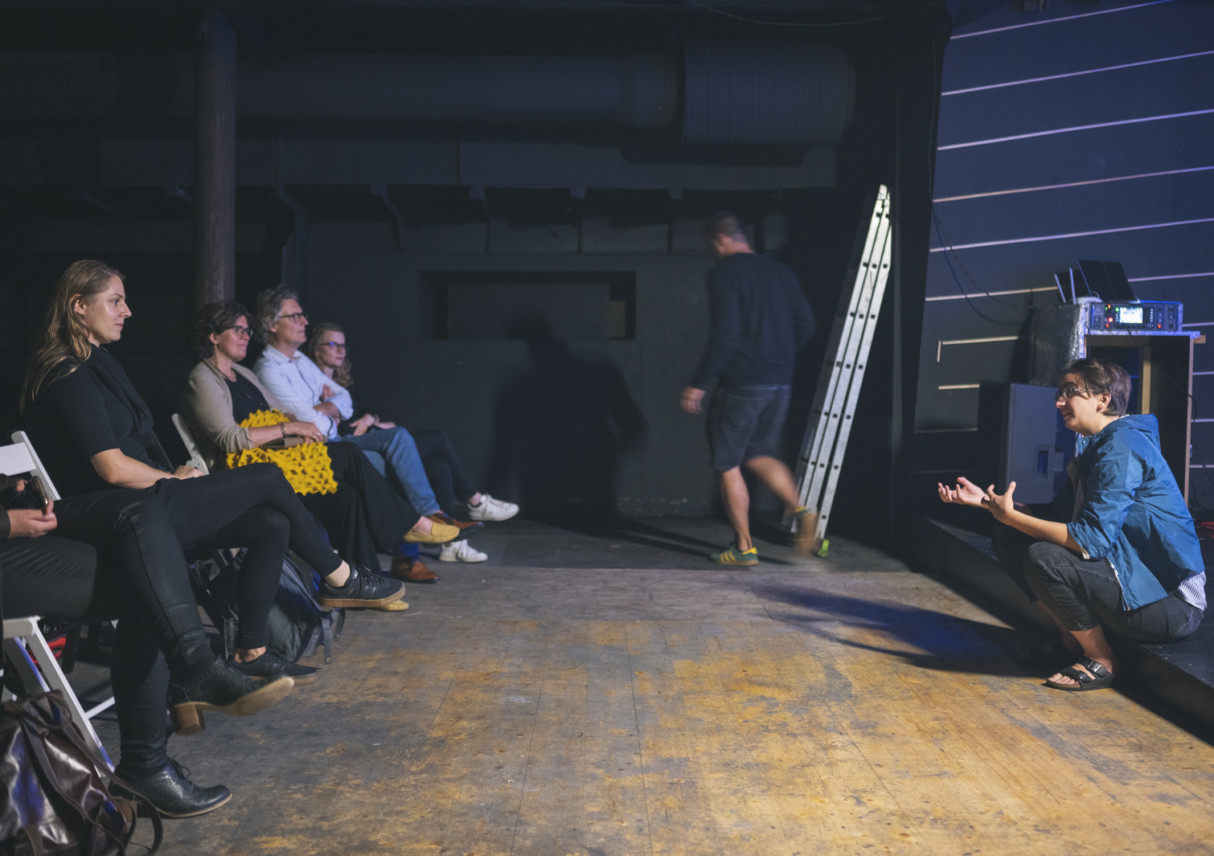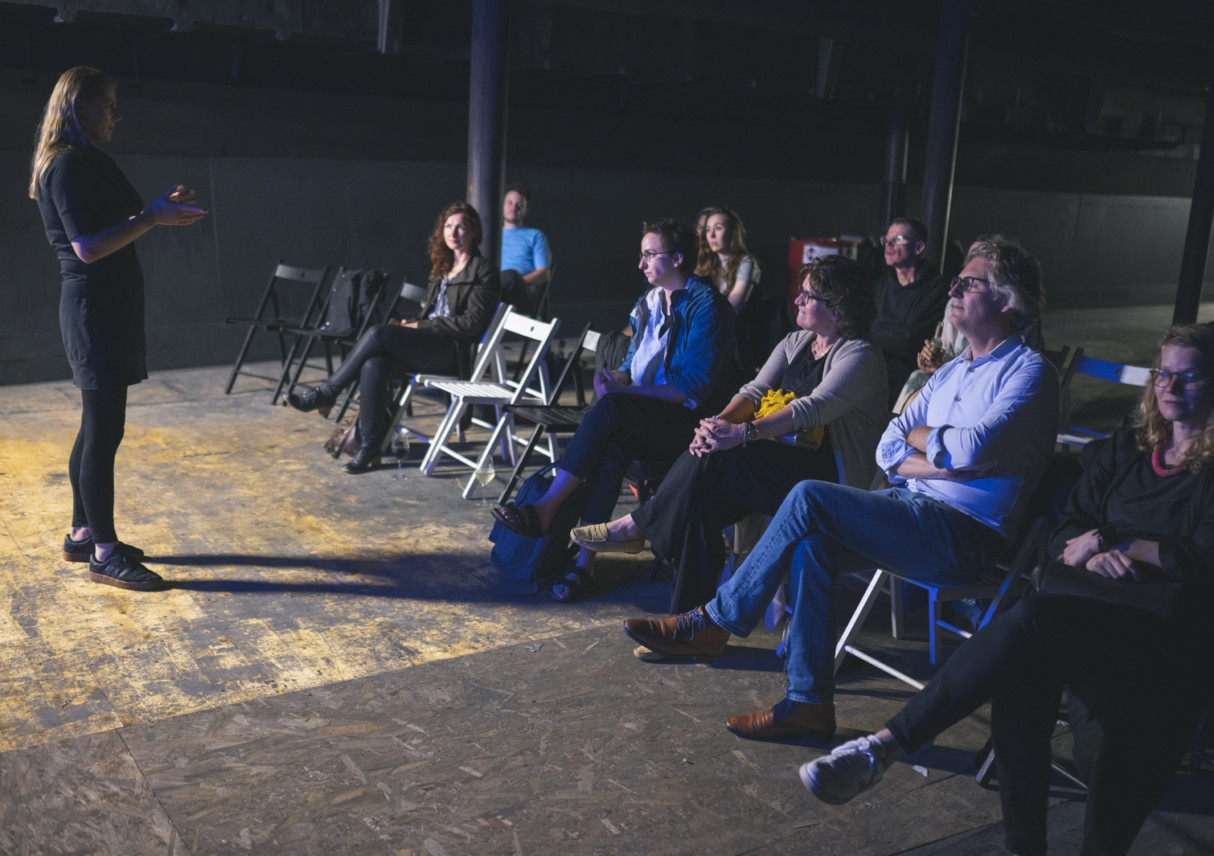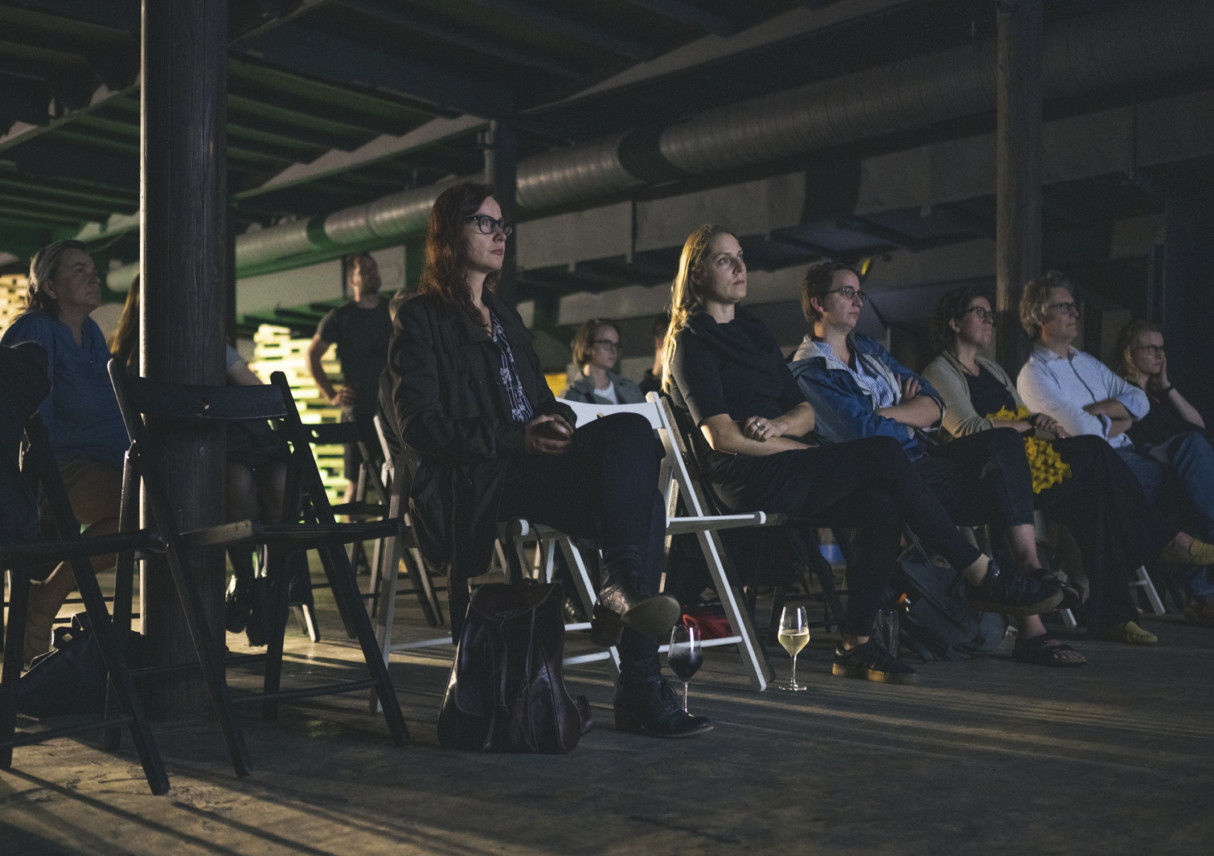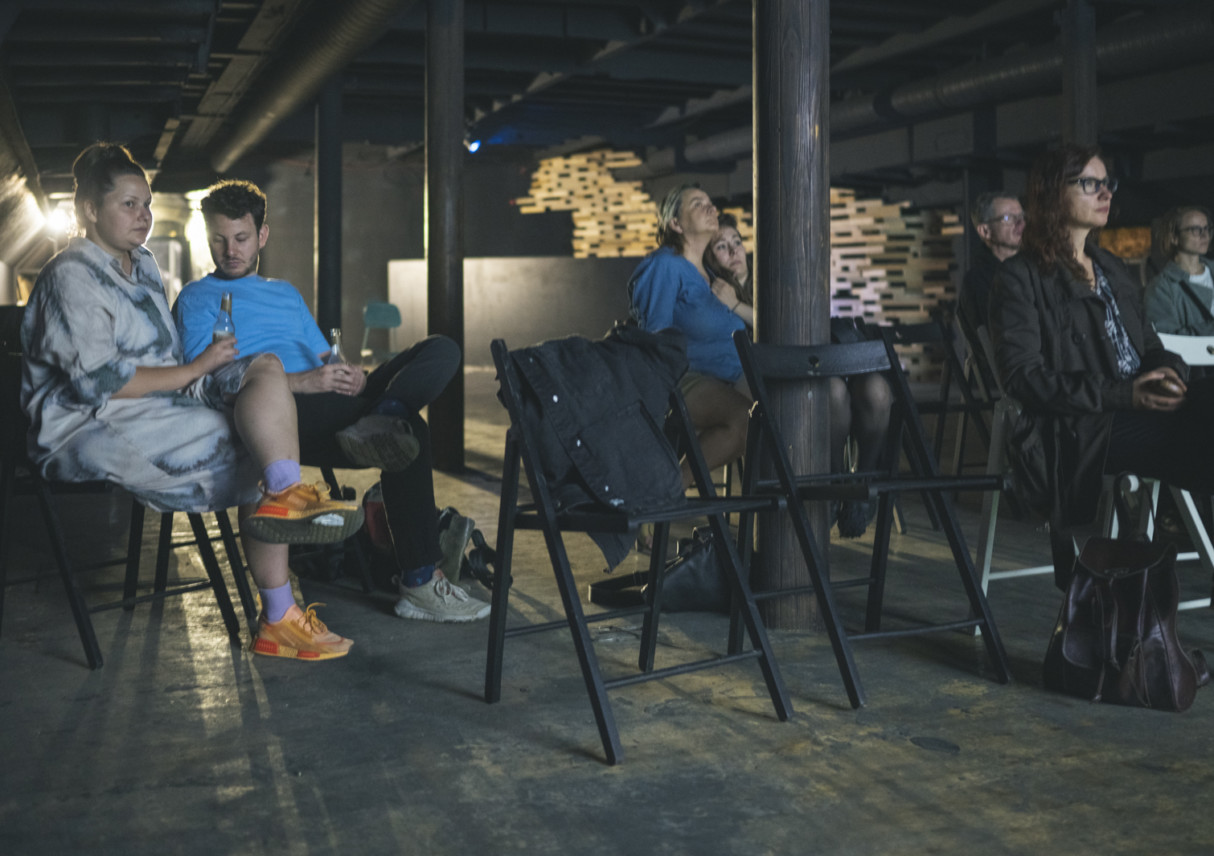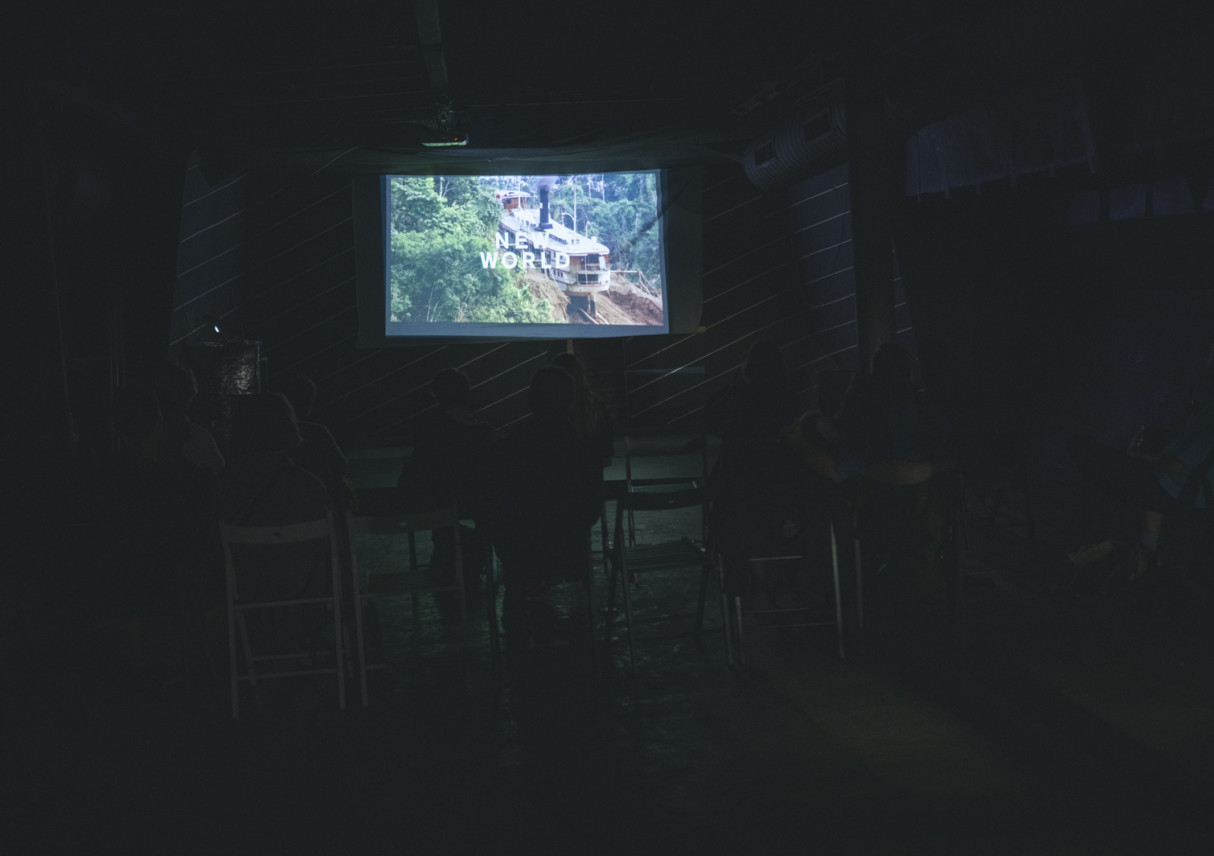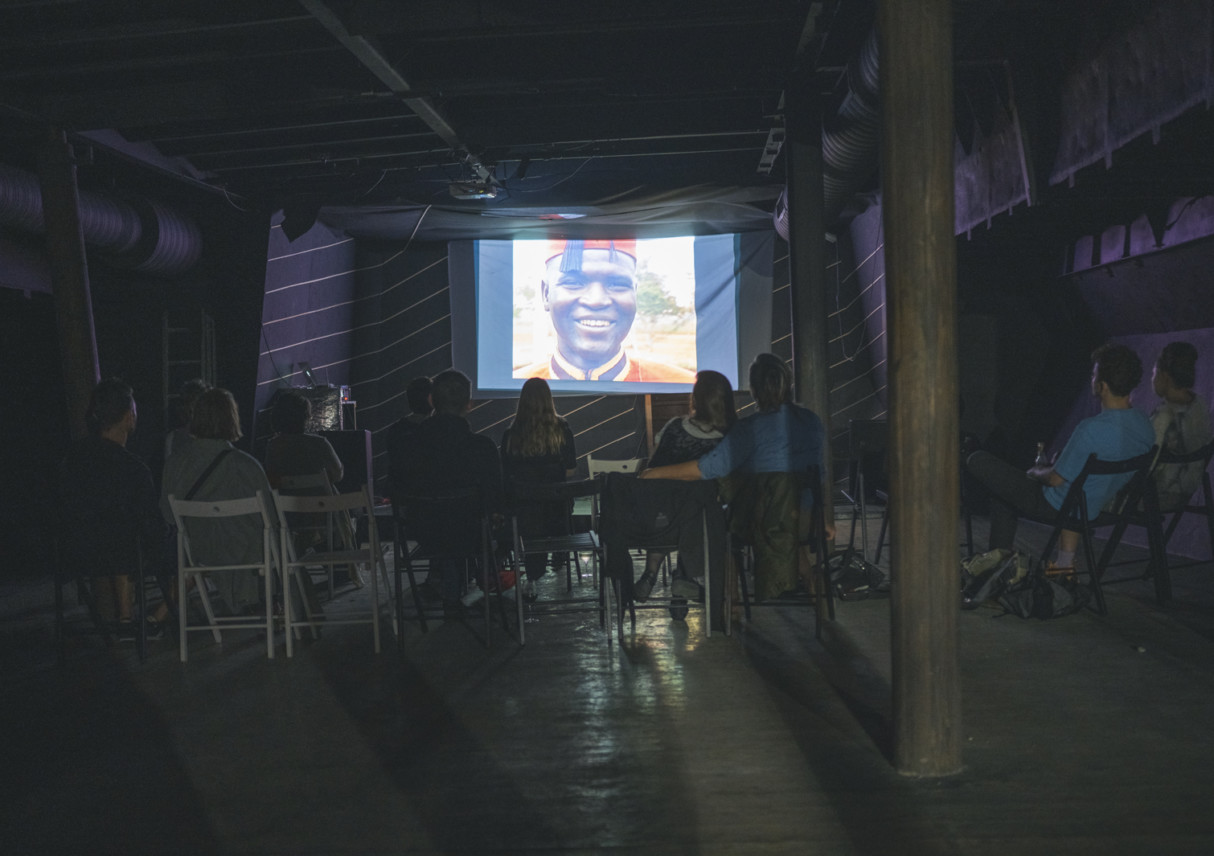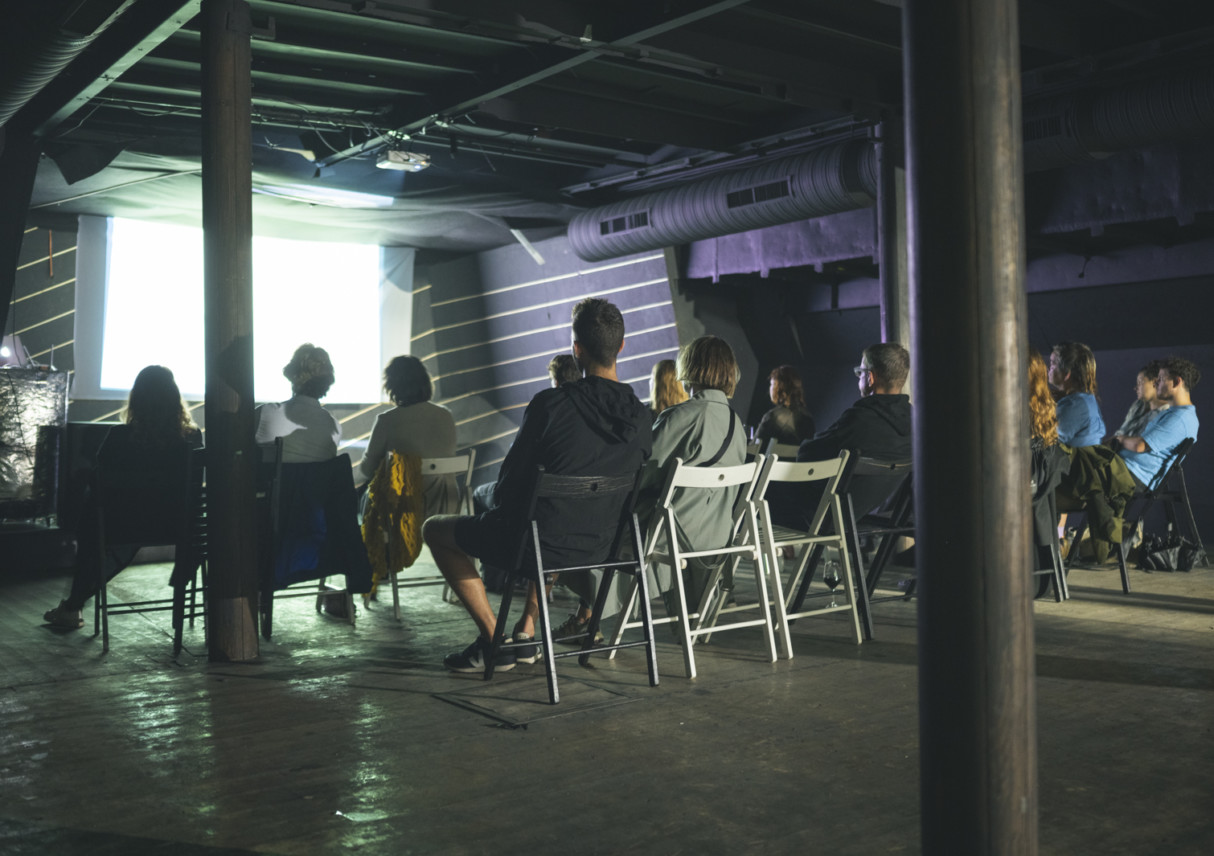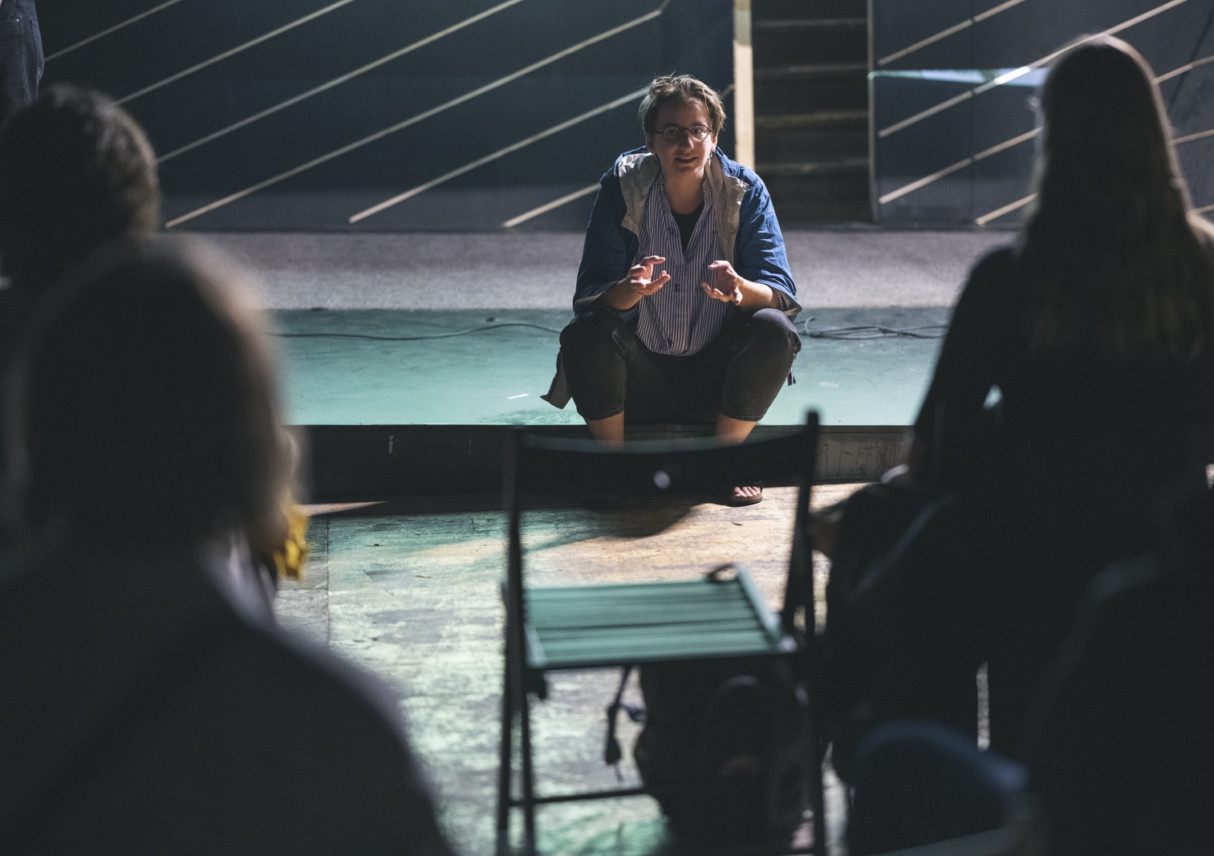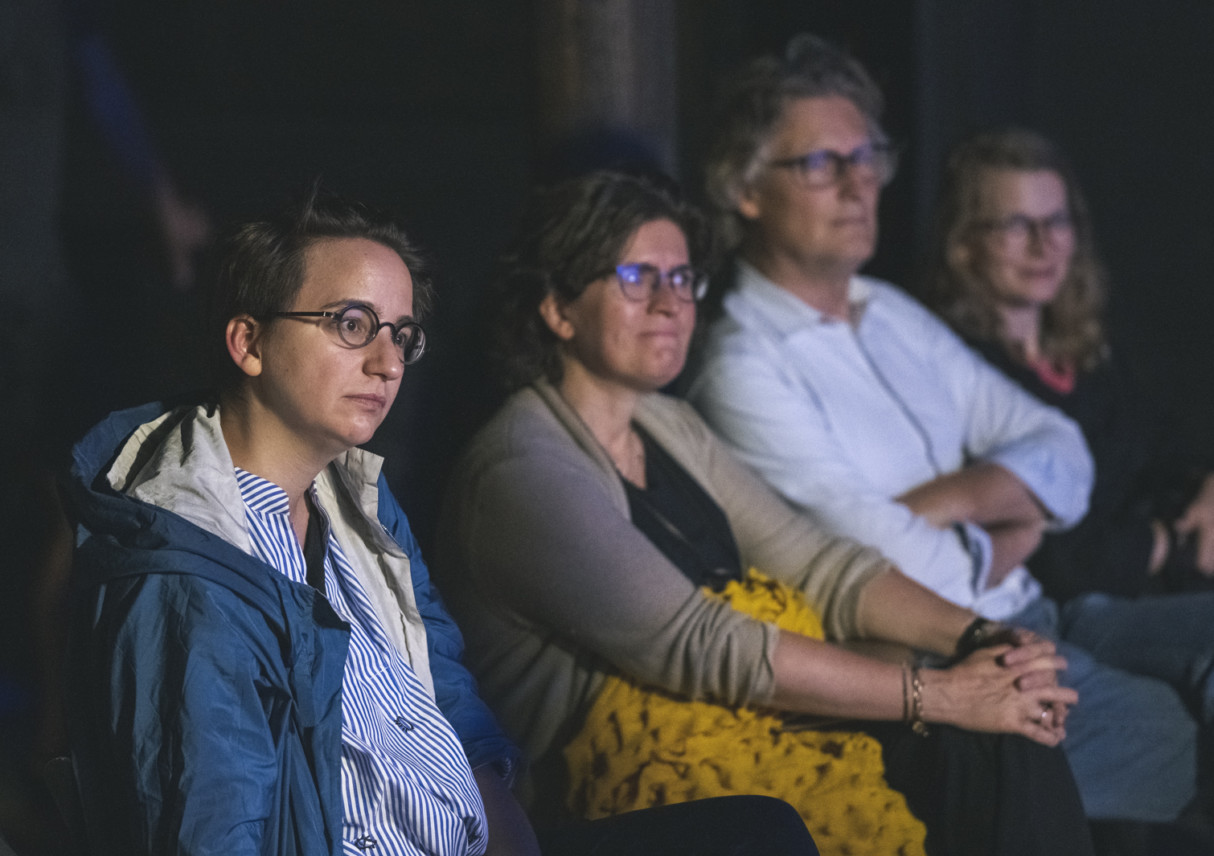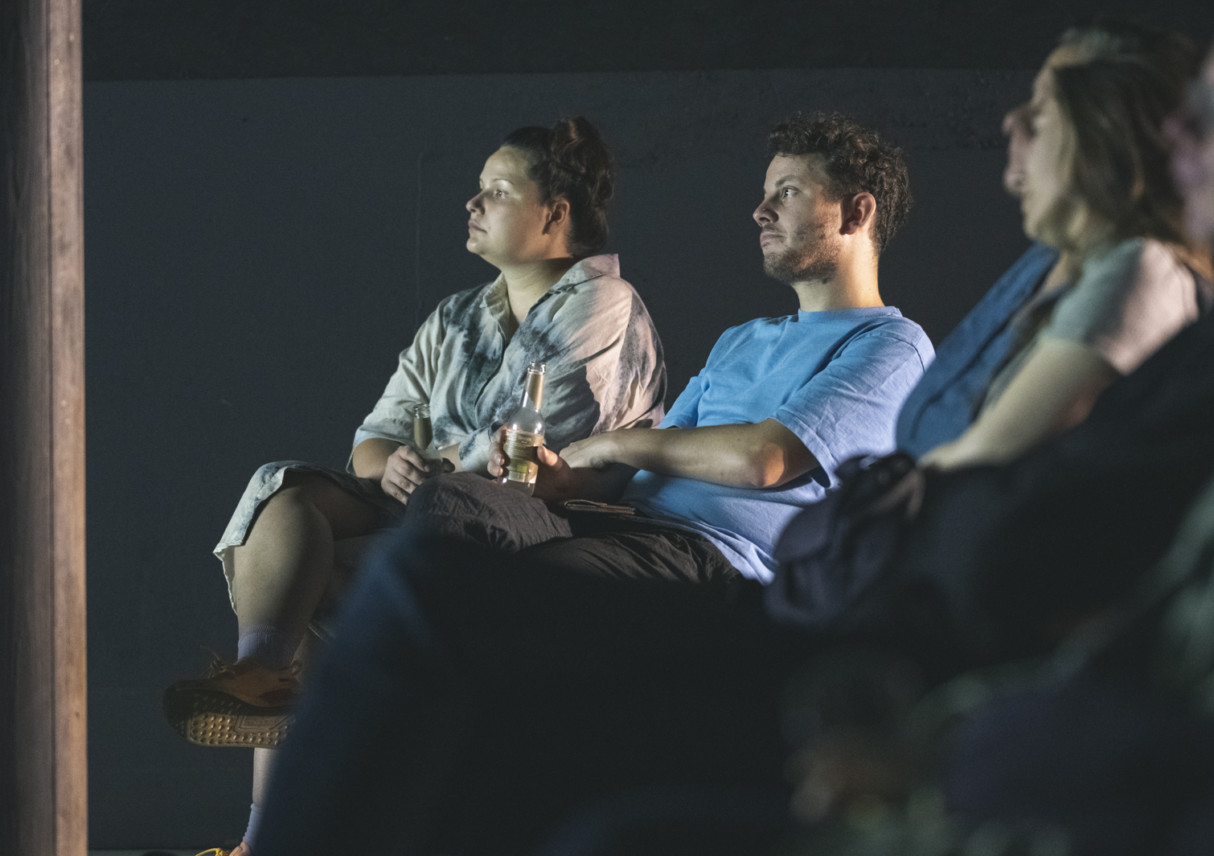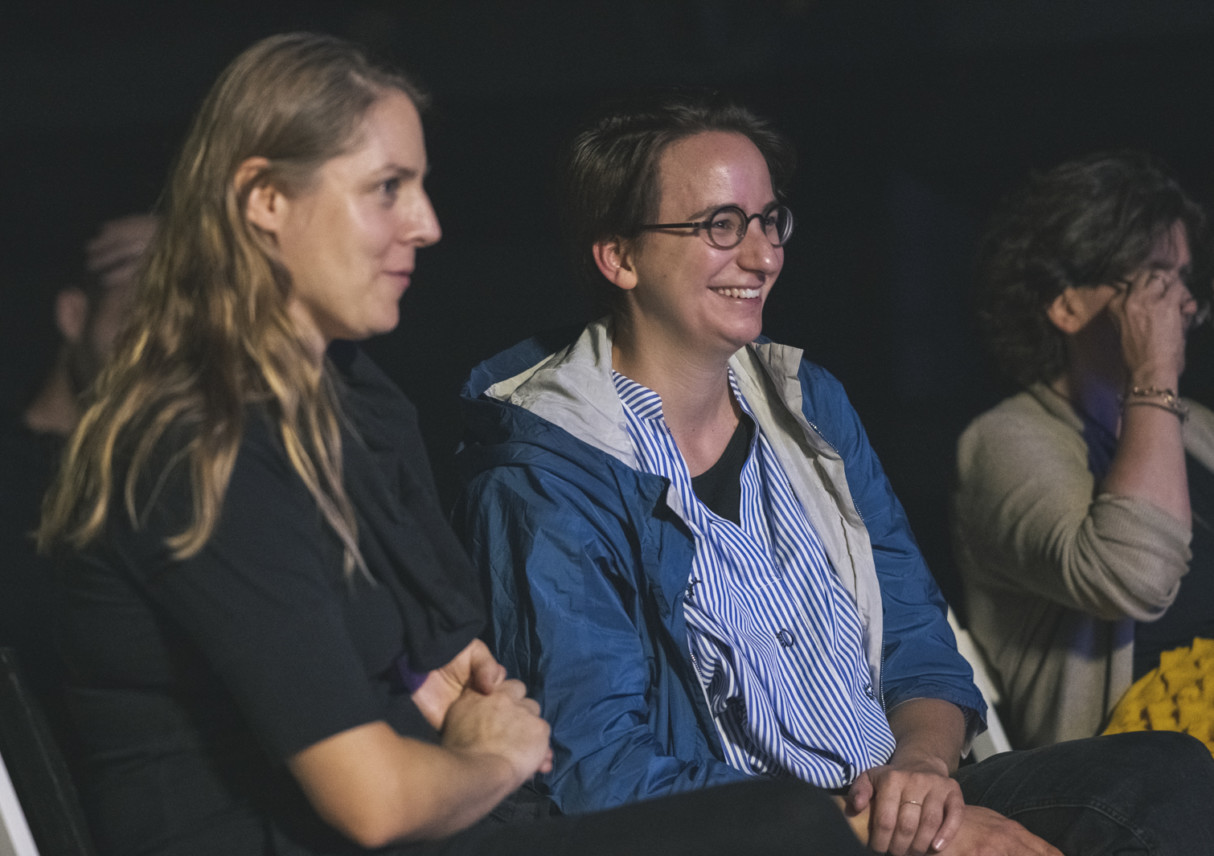Index Seminum
Performative reading of texts and screening of films about plant seeds from the point of view of (de) colonization. One of the main scientific outputs of the Comenius University Botanical Garden is the management of the Seed Index (INDEX SEMINUM), which will be the central theme of this event. “A very important task of the botanical garden is to publish the Seed Index. Through the Seminum index, the Botanical Garden exchanges seeds with 530 botanical gardens in the world. The exchange has been successful since 1952. ”
Botanical Journey
23.08.2022, 16.00 – 18.00
Botanical Garden of Comenius University in Bratislava
Performative reading
The programme includes performative readings of texts that reflect on colonial journeys of knowledge, the creation of botanical gardens as aspirational and colonial structures, and their role in the collection, banking and dissemination of seeds and species. Texts will be gathered from multiple sources: writings by colonial travellers, information from scientific journals, texts from the environmental humanities, philosophy and science fiction. The readings will be aligned with different habitats in the botanical garden and the narrative will be a journey across different times and places. The performative reading in English will be followed by an open discussion led by Borbála Soós.
Programme:
-Meeting at 16:00 at the entrance of the Botanical Garden of Comenius University, Bratislava.
-Guided reading, various locations throughout the Botanical Garden (approx. 45 min) in English
-Discussion in the Rose Garden (approx. 45 min.)
Texts will include sections based on multiple sources of information: including accounts of colonial travellers, information from scholarly journals, environmental humanities texts, philosophy and science fiction. Readings will be aligned with the different habitats in the botanical gardens, narrating a journey through different times and places.
Kay Evelina Lewis-Jones: A Seed in Stasis: Seed Banking and the Gardening of the Wild. In: Botanical Drift. Edited by Khadija von Zinnenburgh Carroll, Sternberg Press, Berlin, 2017.
Jamaica Kincaid, My Garden (Book), Farrar, Straus and Giroux, New York, 1999.
Julietta Singh, Unthinking Mastery, (chapter Cultivating Discomfort), Duke University Press, 2018.
Olive Senior’s poem, Plants, 2015.
Registration: lydia.pribisova@kunsthallebratislava.sk
Participants of the event have free admission to the Botanical Garden
Screening
24.08.2022, from 21.00
Pink Whale, Dvořákovo nábrežie, Bratislava
with moving image works by artists Ana Vaz & Tristan Bera, Laura Huertas Millán, Pilar Mata Dupont, Pedro Neves Marques, Asunción Molinos Gordo, Gerard Ortín Castellví, Jonas Staal
The works in this screening programme reflect on the filmic representation of nature, and how nature is culturally, politically and cinematically constructed. They follow colonial journeys of discovery in tandem with using the camera to narrate a certain relationship with the surroundings. While some of the films consider the creation of botanic gardens as aspirational and colonial structures, as well as their role in collecting, banking and spreading seeds and species and ultimately contributing to the rapid change in biodiversity across the globe, others unfold how contemporary techniques such as GMOs, terminator seeds, fully automated greenhouses and extractivist corporations exacerbate these issues. Together they explore that the current ecological crisis is intimately intertwined with the crisis of representation as well as political, health, economic and social crises.
Ana Vaz & Tristan Bera, A Film Reclaimed, 19’37’’, 2015
The ecologic crisis is a political, economic and social crisis. It is also cinematographic, as cinema coincides historically and critically and descriptively with the development of the Anthropocene. “A Film, Reclaimed” is a conversation, an essay that reads the terrestrial crisis under the influence and with the help of the beautiful and terrible films which have accompanied it.
Laura Huertas Millán, Journey to a land otherwise known, 22’14’’, 2011
The narrative of the “Journey to a land otherwise known” is based on the first accounts made in America by European scientists, conquistadors and missionaries including Bernal Diaz del Castillo, Hans Staden, Jean de Léry, Charles de la Condamine. Shot entirely in the Tropical Greenhouse of Lille, France a brutalist building constructed in 1970 by Jean-Pierre Secq, this setting becomes the theatre of a rainforest, presenting the explorer’s speech and his visions. The film unravels the notion of exoticism as defined by scientific colonisation. Huertas Millán criticises the political construction and the “othering” places and peoples, the foundations of which lie in ethnographic and botanical expeditions.
Pilar Mata Dupont, Excerpt of The Ague, 12’28’’, 2018
“The Ague” focuses on the Royal Botanic Gardens, Kew in London. Plants from all over the British Empire were taken to these botanic gardens to be studied for their commercial and other applications. Today Kew houses the world’s largest seed bank, and in many ways still represents the heart of the colonial empire. Mata Dupont transports us into this world through the case study of the Cinchona tree and by adapting Virginia Woolf’s short story “Kew Gardens”, in which Londoners wander through the gardens in a dreamy state of semi-consciousness. In her adaption of the story, the scientific claims of the gardens acquire increasingly irrational traits, whereby truths and misinformation, colonial histories, and our ecological future coalesce.
Pedro Neves Marques, Linnaeus and the Terminator Seed, 15’00’’, 2017-2018
As the images of plants and genomes pile up, we follow the voice of an astronaut in outer orbit, on his way to colonize a “twin” planet Earth in another galaxy. Through his male voice, the film asks: Is there a deterministic, evolutionary line connecting modern botany to contemporary transgenics? Gathering modern botanical drawings by European naturalists in Latin America and Southeast Asia, plant genome representations, contracts and United Nations documents about the legal status of transgenic seeds, as well as early depictions of the reproductive systems of flowers and humans, this short film essay explores the sexual imaginary of botanists such as Carl Linnaeus to consider the post-natural conditions governing current biotechnology, the colonial management of reproduction, as well the representation and indexation of life forms past and present.
Asunción Molinos Gordo, Purpose, Scope and Penalties, 18’00’’, 2016
Following the question “What is it that prevents us from cultivating our garden?” Molinos Gordo decided to tackle the bureaucratic obstacles in agriculture and address one of the most controversial plant biodiversity laws introduced over the past few decades in Turkey; the Seed Law no. 5553. In close collaboration with independent researcher Ayse Ceren Sarı, Molinos conducted meetings and interviews on the transformation of agriculture with several people in Cappadocia and across Turkey, among them farmers, agriculturists, gardeners, environmental activists, PhD students, academics, researchers, villagers and seed traders. Focusing on the specific case of Seed Law no. 5553, Ayse and Asunción tried to understand seed policies and what these policies imply for the region through the opinions and comments of the interviewees. “Purpose, Scope and Penalties” was produced by Asuncion Molinos Gordo in the context of the Cappadox Festival (Uchisar, Turkey) “Let Us Cultivate Our Garden”, 2016. Curated by Fulya Erdemci and Kevser Guler.
Gerard Ortín Castellví, Agrologistics, 20’59’’, 2021-2022
”Agrologistics” looks at recent technological transformations in contemporary industrial agriculture. Tulip bulbs, chrysanthemum stems and vine tomatoes are processed through cameras, feeding datasets that regulate their own growth. During the day, the greenhouse is a cinematic device, an automated film set optimized for the mass production of fruits and flowers. At night, the factory stops: without an inside or an outside, the greenhouse becomes an oneiric chamber where plants, animals and machines form new entanglements.
